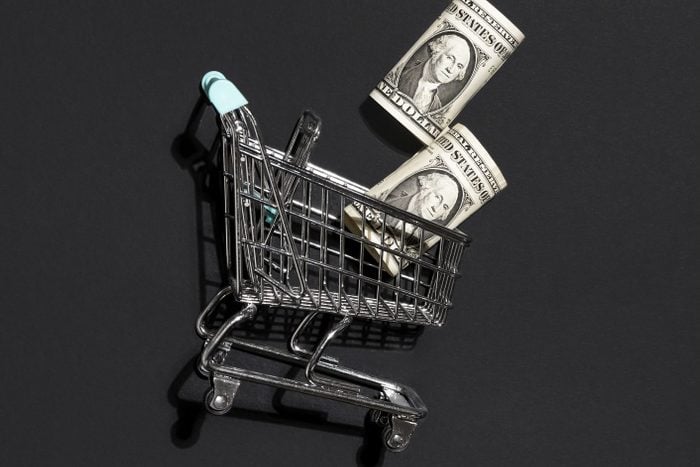
How to shop smarter
Whether you’re on a tight budget or have millions in the bank, the last thing you want is to waste your hard-earned cash. That’s easier said than done, which is why it pays to take some tips from the pros. Finance wizards really know how to keep unnecessary spending in check. “Money experts typically aren’t big spenders and definitely don’t buy things they can’t afford,” says WalletHub analyst Jill Gonzalez.
They tend to look for quality over quantity, but it doesn’t stop them from shopping at places like Walmart, Costco and Target—especially in this economy, when everyone is feeling the pinch. A recent survey found that households with six-figure incomes are 15% more likely to say they would shop at dollar stores compared with just a year ago.
To help you lower your household bills and keep more money in the bank, we spoke to money experts to learn which items they buy on the cheap—and some of them may surprise you.
Get Reader’s Digest’s Read Up newsletter for more money-saving tips, humor, cleaning, travel, tech and fun facts all week long.

Gas
Gas is something nobody wants to overspend on. “Gas prices are incredibly high at the moment, so we should all be looking for ways to save at the pump,” says smart-shopping expert Trae Bodge. Luckily, saving money on gas can be as easy as installing a money-saving gas app on your phone.
“Experts will use an app like GasBuddy to find the best gas prices nearby, as well as use the credit card that offers the highest points on gas,” Bodge explains. “Or better yet, we pay in cash, which is always cheaper.”

Food
Food prices have also sharply risen recently—by as much as 4.3% between August 2022 and August 2023, according to a recent Consumer Price Index report from the Bureau of Labor Statistics. But money experts say there are plenty of ways to save money at the grocery store. For starters? “Buy generic brands and in-season produce,” says Andrew Lokenauth, a financial expert and founder of the site Fluent in Finance.
And make sure you sign up for the store’s loyalty program, if it offers one. “This can allow you to benefit from member-only discounts that are automatically deducted at checkout,” says Christopher Stroup, a certified financial planner in Santa Monica, California. You may even want to consider paying with a grocery rewards credit card that offers cash back on every purchase, he says.
Finally, watch out for deceptive grocery store labels. Supermarket sales can be tempting, but they might cost you more in the long run.

Wireless plans
While investing in a secure phone is a must, money experts know cell phone companies are notorious for sneakily overcharging their customers. “I’ve been overpaying for my phone service for years, and I bit the bullet at the end of 2021 and switched my family over to Mint Mobile for wireless service,” says Bodge. “This saves us over $100 a month yet has premium service and plenty of data.”
It’s always a smart idea to shop around for the best plan or call your current provider to see if there are any more cost-efficient plans available.
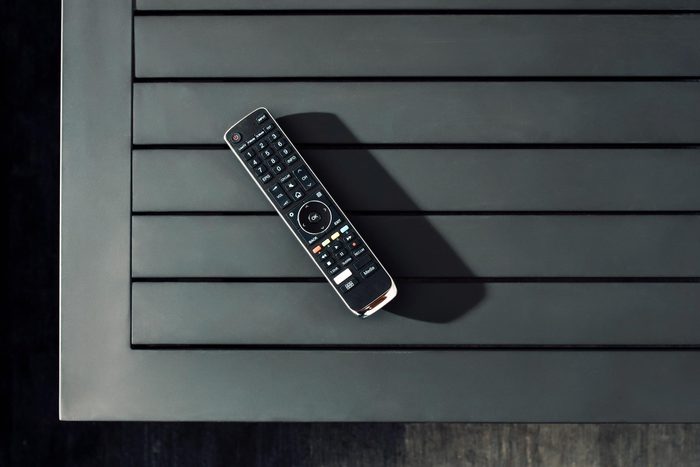
Cable
Similar to cellular plans, cable costs may be something you can lower easily with a phone call or by shopping around. Better still? “Cut cable,” says Lokenauth.
There are plenty of cable alternatives to choose from (including free streaming services!), and they allow you to cater your entertainment spending to the content you watch most often. In other words, you won’t be shelling out for channels you never watch.
Just make sure you review your subscriptions monthly—and never put these bills on autopay—to ensure you’re not paying for any services you’re not using. And remember: No matter how cheap these services may seem, the fees can add up if you subscribe to a bunch of them. Keep costs down by sticking with free streamers or signing up for only those you truly need.
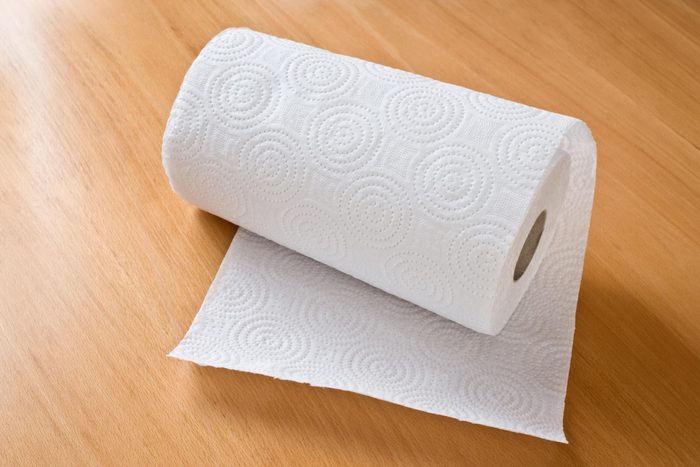
Household essentials
It can be tempting to splurge on fancy household essentials such as toilet paper, cleaning supplies and laundry-room products, but resist that temptation! Many of the basics work just as well.
Want to spend even less on these goods? Look for sales and coupon codes before checking out, or use coupon apps to save time and money. “Wholesale clubs are another great option, as you can rack up serious savings by buying in bulk,” says Stroup.
Another hack won’t just save you money but will also help save the planet: “Try to use reusable alternatives over disposable items,” Stroup says. “For example, instead of paper napkins, go with cloth.” They may cost more up front, but you’ll recoup those costs in the long run and create less waste in the process.
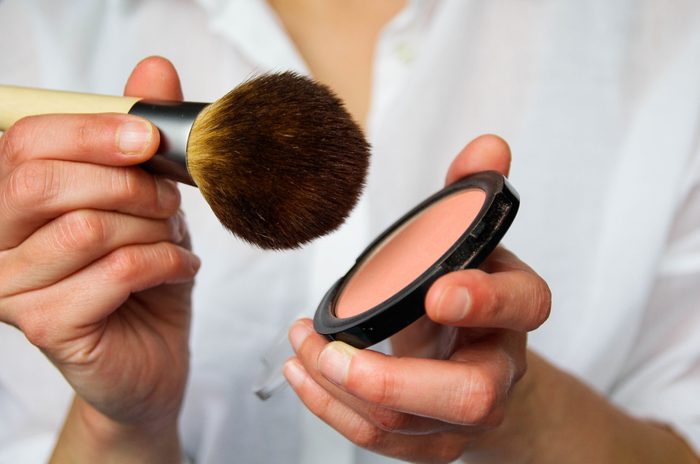
Personal-care products
Sure, you can spend oodles on designer makeup or fancy moisturizer, but why do that when you can get something great for a whole lot less? While some $300 creams are admittedly amazing, Bodge won’t spend that kind of money simply on principle.
“Thankfully, there are $30 creams that work very, very well,” she says, adding that money experts will look for deals on those long CVS receipts or wait for semi-annual sales. Sale season is really the best time to buy personal-care products. To save even more money, buy moisturizer in bulk when you find these deals.
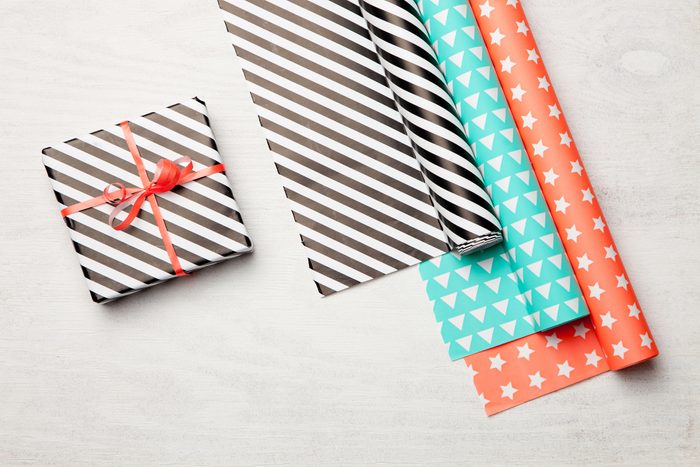
Gift wrap
Beautiful wrapping paper, gift bags and cards can easily cost as much as a gift itself. Money-saving experts recommend spending more on a high-quality gift than extravagant gift packaging, since the latter will just get tossed. “Fancy gift wrap can make for a nice presentation, but there is a lot you can do with wrapping paper, ribbons or gift bags that you’ve purchased at a dollar store,” says Bodge. “I also save salvageable gift wrap for repurposing, and I would assume other penny-pinchers do the same!”
Finally, skip paying the $5 to $7 for a store-bought greeting card and print your own for free. We’ve got you covered with free Christmas cards, Valentine’s Day cards, Easter cards, Mother’s Day cards and Father’s Day cards.
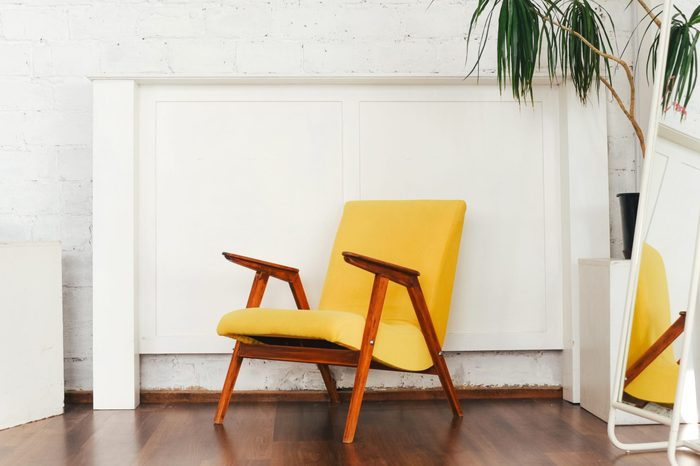
Furniture
Want a high-end look in your home without the high-end cost? Money experts often look to gently used, secondhand furniture to get designer styles for much cheaper. “Check thrift stores, Craigslist or Facebook Marketplace,” says Lokenauth. And if there’s a piece you’re just dying to add to your collection, be patient—it will eventually go on sale.
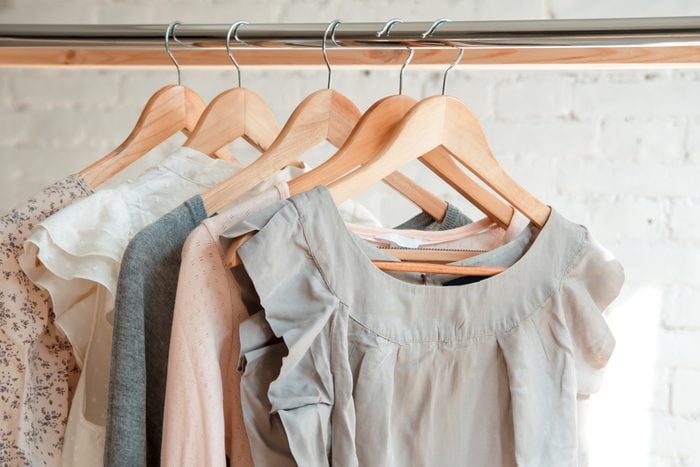
Trendy styles
Money experts usually don’t pay attention to brand names when it comes to everyday clothing items, says Gonzalez. But they do focus on quality instead of fast fashion, which may wear out after just a handful of uses. “This way, [clothing] lasts longer and thus ends up being cheaper in the long term,” she says.
Knowing the best time to buy new clothes and building a capsule wardrobe from a few well-chosen investment pieces can help you save money while still rocking a style that looks expensive.
As far as jewelry goes, “you can find unique and affordable pieces at big-box stores, like Target or Walmart, that will dress up your outfit without costing a fortune,” says Bodge. And for accessories like sunglasses, Lokenauth suggests looking for end-of-season sales or discount designer dupes, which can look just as good as the real thing.

Travel
Everyone has a different opinion about travel and splurging, but Bodge maintains that money experts seek out the best deals while also considering travel time. Why? “Because time is money,” she notes. “You’d be unlikely to see a money-saving expert saving a little bit of money on a flight that involves a layover of many hours. But we’ll always look for ways to save, whether it be a discounted package rate or timing our travels strategically when it costs less to go somewhere.”
Many of them use the same online search tools and flight price trackers that we do to find their next travel deal and determine the best time to buy plane tickets. Some even opt to fly coach over first class to save even more.
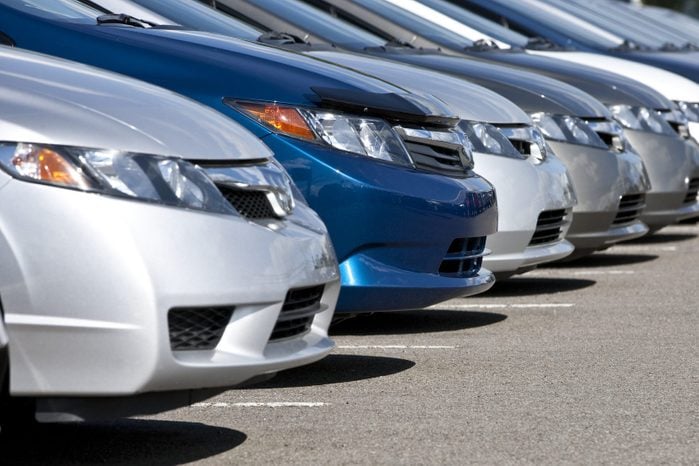
Cars
Mercedes, Rolls-Royce, Lamborghini and Ferrari. Those are the first cars that people with a high net worth splurge on, right? Nope. According to a 2022 study from Experian, 61% of those making $250,000 a year or more don’t drive luxury vehicles. The most popular car brands—and, incidentally, the most reliable—are Toyota, Ford and Honda.
“Cars are one thing money experts don’t splurge on,” says Gonzalez. This is because the value of a new car depreciates very quickly—by at least 20% in the first year. “They don’t want to take such a loss. They know that the best value comes from buying a used car, and keeping it for a longer period of time will save money.”
To further save on your next ride, get strategic about your shopping. Learn the best time to buy a car, then hold off on your purchase until you can get a great deal.

Houses
A home is the biggest purchase you will make, and you need to be realistic about what you can afford. That’s why money experts make sure they don’t sink every penny they have into a house, says Gonzalez.
“By choosing to spend less on a home,” she adds, “they’re able to pursue other financial goals, such as early retirement, traveling more or even becoming mortgage-free sooner rather than later.”
Additional reporting by Leah Groth.
About the experts
- Jill Gonzalez is a public policy expert, financial literacy advocate and analyst at WalletHub. She has shared her expertise on NBC Nightly News, Fox Business Network, Wall Street Journal Live and C-SPAN’s Washington Journal.
- Trae Bodge is a shopping expert, brand strategist and lifestyle journalist sharing smart shopping tips with consumers at the site True Trae.
- Andrew Lokenauth has more than 15 years of experience across Wall Street, tech and startups, having held roles at Goldman Sachs, Citi and J.P. Morgan Asset Management. He’s the founder of the financial advice website and newsletter Fluent in Finance.
- Christopher Stroup is a certified financial planner with Abacus Wealth Partners in Santa Monica, California. He focuses on solving the financial planning needs of business owners and those with significant equity compensation.
Sources:
- Wall Street Journal: “One-Percenters Keep Shopping at the Dollar Store”
- MediaPost: “Millionaires Love Costco, Home Depot and Lowe’s”
- U.S. Bureau of Labor Statistics: “Consumer Price Index Summary”
- Forbes: “Affluent Car Buyers Are Surprisingly More Practical Than Indulgent”
- Moneywise: “The top car brands that Americans earning more than $200K drive most”
